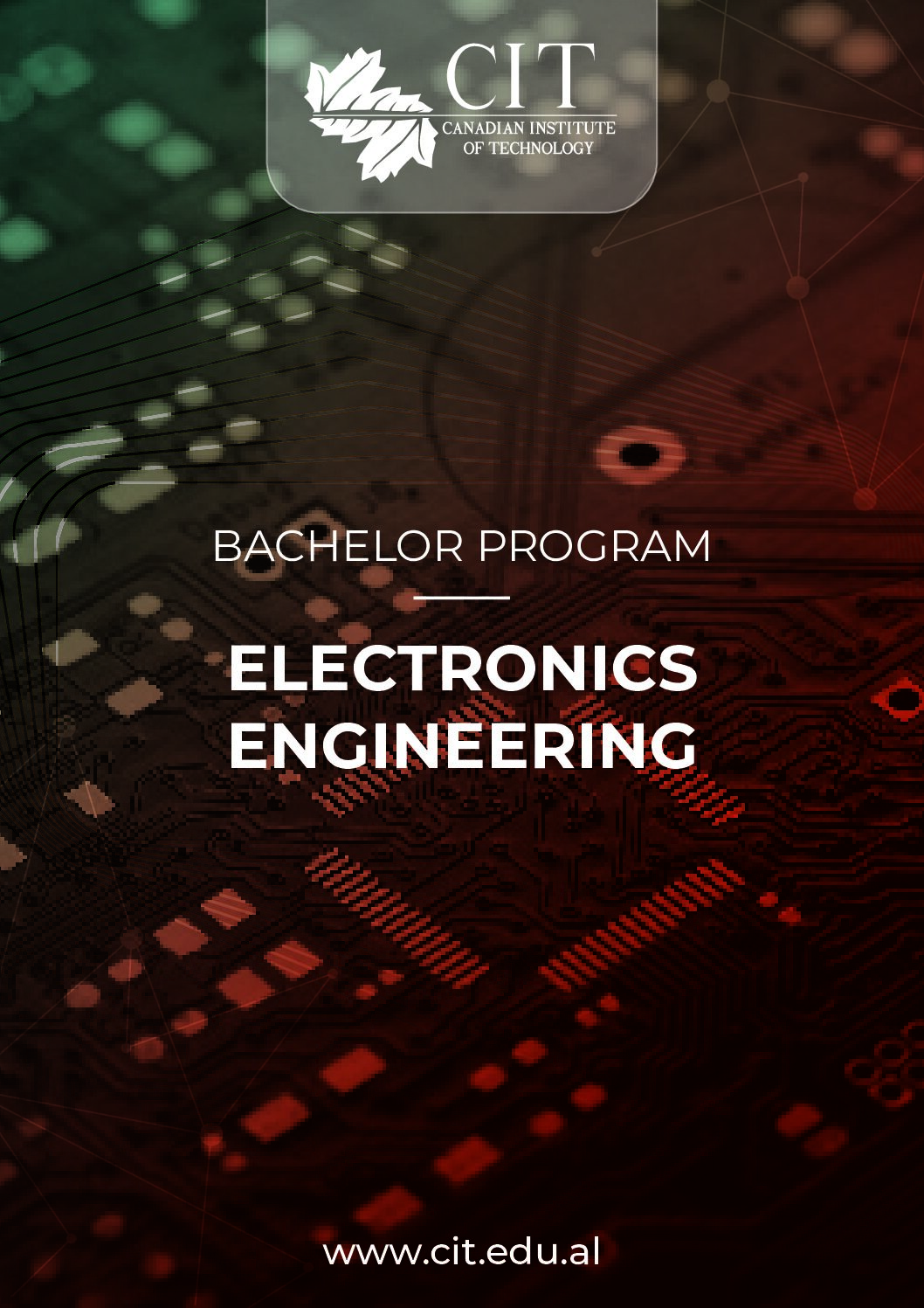FAKULTETET & DEPARTAMENTET
- Fakulteti i Inxhinierisë
- Fjala e Mirëseardhjes së Dekanit
- Anëtarët e Stafit të Fakultetit
- Departamenti i Inxhinierisë Softuerike
- Bachelor – Inxhinieri Softuerike
- Bachelor – Inxhinieri Kompjuterike dhe IT
- Master Shkencor – Inxhinieri Softuerike
- Master Shkencor – Inxhinieri Kompjuterike dhe IT / Rrjeta dhe Siguria Kibernetike
- Master Shencor – Inxhinieri Kompjuterike & IT / Inxhinieri Kompjuterike dhe Big Data
- Master i Shkencave – Inxhinieri Kompjuterike & IT / Multimedia Dizanj
- Departamenti i IET
- Fakulteti i Ekonomisë
- Fakulteti i Inxhinierisë
- Fjala e Mirëseardhjes së Dekanit
- Anëtarët e Stafit të Fakultetit
- Departamenti i Inxhinierisë Softuerike
- Bachelor – Inxhinieri Softuerike
- Bachelor – Inxhinieri Kompjuterike dhe IT
- Master Shkencor – Inxhinieri Softuerike
- Master Shkencor – Inxhinieri Kompjuterike dhe IT / Rrjeta dhe Siguria Kibernetike
- Master Shencor – Inxhinieri Kompjuterike & IT / Inxhinieri Kompjuterike dhe Big Data
- Master i Shkencave – Inxhinieri Kompjuterike & IT / Multimedia Dizanj
- Departamenti i IET
- Fakulteti i Ekonomisë
Fakultetet > Fakulteti i Inxhinierisë > Departamenti i Inxhinierisë së Elektronikës dhe Telekomunikacionit > Bachelor – Inxhinieri Elektronike
Bachelor - Inxhinieri Elektronike
Programi i Inxhinierisë Elektronike është një fushë studimi që fokusohet në projektimin, analizën dhe zbatimin e sistemeve elektronike, duke përfshirë komponentët e harduerit dhe softuerit. Studentët në këtë program mësojnë për parimet dhe teknikat e përdorura në inxhinierinë elektronike, si qarqet analoge dhe dixhitale, mikroprocesorët, sistemet e komunikimit, sistemet e kontrollit dhe përpunimi i sinjalit. Programi zakonisht fillon me kurse themelore në matematikë, fizikë dhe analizë bazë të qarkut. Studentët më pas kalojnë në kurse më të avancuara në fusha të tilla si elektronika, përpunimi dixhital i sinjalit, sistemet e komunikimit, sistemet e kontrollit dhe inxhinieria kompjuterike. Kurrikula përfshin gjithashtu kurse laboratorike që u japin studentëve përvojë praktike me projektimin, ndërtimin dhe testimin e sistemeve elektronike.
Gjatë gjithë programit, studentët inkurajohen të angazhohen në kërkime dhe zhvillim në fushën e inxhinierisë elektronike. Ata kanë mundësinë të punojnë në projekte që adresojnë problemet dhe sfidat e botës reale, të tilla si zhvillimi i pajisjeve mjekësore, dizajnimi i sistemeve të komunikimit për zona të largëta dhe përmirësimi i efikasitetit të energjisë në pajisjet elektronike.
Qëllimi i këtij programi studimi është të sigurojë përgatitjen e specialistëve në fushën e inxhinierisë kompjuterike bazuar në programet më të avancuara të kohës. Programi i diplomës ka një kurs studimi unik që u jep studentëve koncepte bazë inxhinierike duke ofruar mundësinë për të gërmuar në botën e qarqeve elektrike, mikroelektronikës, sistemeve të komunikimit dhe shumë më tepër.
Aftësitë e synyara
- Kuptoni të gjitha aspektet e qarqeve dhe sistemeve elektronike bazë.
- Zbuloni problemet praktike që mund të ndodhin në inxhinierinë elektrike dhe zgjidhni metodat e duhura për zgjidhjen e këtyre problemeve.
- Hartoni mënyra të reja për të përdorur energjinë elektrike për të zhvilluar ose përmirësuar produkte.
- Zgjidhini problemet dhe mendoni në mënyrë kritike.
- Komunikoni mirë me gojë dhe me shkrim.
- Hulumtoni dhe zhvilloni zgjidhje të reja për problemet në inxhinierinë elektronike/elektrike.
- Zbatimi dhe funksionimi i sistemeve të inxhinierisë elektrike.
- Analizoni dhe zgjidhni probleme komplekse që lidhen me sistemet elektrike.
- Parandaloni dhe shmangni aksidentet në industri dhe plotësoni Certifikimin e Aftësive të Sigurisë industriale.
Planifikimi i Programit
Course name | Duration | Credits | ECTS |
|---|---|---|---|
Academic Reading & Writing | 15 weeks | 3 | 6 |
Introduction to Economics | 15 Weeks | 3 | 6 |
Calculus I | 15 Weeks | 3 | 6 |
Computer Applications | 15 Weeks | 3 | 6 |
Elective | 15 Weeks | 3 | 6 |
Course name | Duration | Credits | ECTS |
|---|---|---|---|
Computer Science Fundamentals | 15 weeks | 3 | 6 |
Introductions to Statistics | 15 Weeks | 3 | 6 |
Linear Algebra | 15 Weeks | 3 | 6 |
Computer Communications and
Networks | 15 Weeks | 3 | 6 |
Physics I | 15 Weeks | 3 | 6 |
Course name | Duration | Credits | ECTS |
|---|---|---|---|
Fundamentals of Programming I | 15 weeks | 3 | 6 |
Physics II | 15 Weeks | 3 | 6 |
Electric Circuits | 15 Weeks | 3 | 6 |
Electronic Device | 15 Weeks | 3 | 6 |
Calculus II | 15 Weeks | 3 | 6 |
Course name | Duration | Credits | ECTS |
|---|---|---|---|
Fundamentals of Programming II | 15 weeks | 3 | 6 |
Digital Logic and Microcontrollers | 15 Weeks | 3 | 6 |
Probability and Random Processes | 15 Weeks | 3 | 6 |
Sensors Technologies | 15 Weeks | 3 | 6 |
Signals and Systems | 15 Weeks | 3 | 6 |
Course name | Duration | Credits | ECTS |
|---|---|---|---|
Antenna and Wave Propagation | 15 weeks | 3 | 6 |
Digital Signal Processing | 15 Weeks | 3 | 6 |
Electronic Measurements | 15 Weeks | 3 | 6 |
Research Methods | 15 Weeks | 3 | 6 |
Elective | 15 Weeks | 3 | 6 |
Course name | Duration | Credits | ECTS |
|---|---|---|---|
VHDL and FPGA Systems | 15 weeks | 3 | 6 |
Information and Quantum Computing | 15 Weeks | 3 | 6 |
Automatic Control Systems | 15 Weeks | 3 | 6 |
Internship | 4 Weeks | 3 | 6 |
Thesis | 3 | 6 |
Mundësi Karriere
- Inxhinier Elektronike
- Inxhinier i Sistemeve të Prodhimit
- Inxhinier Sistemesh
- Inxhinier elektrik
- Teknik Elektro-Mekanik
- Inxhinier i rrjeteve dhe sistemeve
- Inxhinier i Hapësirës Ajrore
- Automatizimi i Dizajnit Elektronik
- Inxhinier i Dizajnit Elektronik
- Inxhinier i Sistemit të Kontrollit
Tarifat e studimit
3000 EURO
Kërkesat e pranimit
Diploma Bachelor

